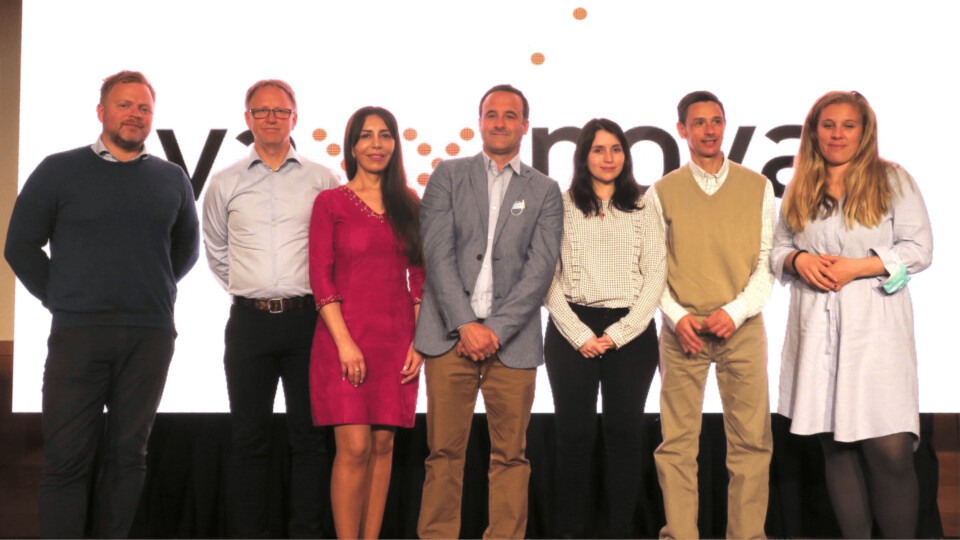
New live vaccine announced to control SRS
Vaxxinova Chile is in the final stage of development and licensing of a new vaccine for the prevention of salmon rickettsial septicaemia (SRS) that, in the laboratory, has shown a protection of 98%.
SRS is a significant problem for salmon farmers in Chile and Canada, and a reason why antibiotic use is higher in Chile than other salmon producing countries. It also occurs less frequently in farmed salmon in Europe.
Vaxxinova Chile announced the vaccine at a seminar titled “Vaxxinova focuses on the prevention and control of ulcerative bacterial diseases in salmonids in Chile and Norway: status, experiences, tools and trends”, during which it mapped out its strategy for Chilean salmon farming.
Special strain
In addition to putting a strong focus on autogenous vaccines for emerging pathogens for which there are no commercial vaccines or for which the available vaccines have not been effective, the company also announced the launch of a new vaccine to control the bacterium Piscirickettsia salmonis, which causes SRS.
It is a live attenuated vaccine based on the EM-90 strain with which Vaxxinova has been working since 2016 with the support of ADL Diagnostics, state innovation funder Corfo, and Blue Genomics Chile.

Valeska Herrrera, Vaxxinova Chile-Blue Genomics R&D project leader, explained that one of the characteristics that would make the vaccine different from what’s already on the market is that the strain used has six attenuated genes and the loss of a complete plasmid, compared with the original strain.
Virulence factors
“The most important thing is that in ‘gene 6’, we identified a fairly important deletion at the chromosome level of approximately 16 kb and that it is related to genes associated with aerobic metabolism and putative virulence factors of the bacterium,” said Herrrera.
From a genetic point of view, this panel of mutations would mean that the probability of reversal of virulence of this strain is practically zero. This attribute was also verified by Vaxxinova experts in in vivo and in vitro tests.
The effectiveness of the vaccine was also tested through in vivo experimental challenges, both with intraperitoneal injections and through cohabitation, obtaining final Relative Survival Percentages (RPS) of 93.8% and 98%, respectively.
Cellular protection
Additionally, the fish immunised with the attenuated strain do not produce high levels of antibodies, which would indicate a cellular rather than humoral type of protection, and despite slight histopathological findings in the liver and cephalic kidney, functionality is not affected.
When examining the immunised fish surviving a challenge with the pathogen, no clinical signs of SRS were observed. “It is also worth mentioning that due to the characteristics of our isolate, as it is not adjuvant with oils, we do not generate any type of adherence or melanosis,” said Herrrera.
Another unique characteristic of the new vaccine prototype is that, according to the results of another in vivo trial, it offers cross-immunity protection against the LF-89 strain of P. salmonis, with a final RPS of 89.6%.
Registration phase
Concluding her presentation, Herrrera reported that the researchers are currently in the product development and registration phase, carrying out pilot tests to generate registration tests. In parallel, they are developing tests at experimental stations.
If all goes well, the registration file should be submitted during the second half of next year.
Unique isolate
Dr Marcos Mancilla, scientific director of the ADL Diagnostics laboratory, said: “Although our core business is not to generate vaccines, we wanted to take advantage of the capabilities we had from knowledge of P. salmonis and we set ourselves this goal, which was very ambitious and obviously not without challenges. However, we found in Vaxxinova the partner we needed for this product to scale and reach a product that will finally become a new alternative.
“It is a unique discovery. It is not a genetically modified organism, it is rather an isolate that was obtained and characterised, where we realised that it had several characteristics that made it unique, and we decided to continue with it to develop this product.”
Vaxxinova Chile is part of Netherlands-based Vaxxinova International BV, a part of German agribusiness giant EW Group which also owns salmon egg producer AquaGen and GenoMar Genetics, the world’s largest tilapia breeding company.























































